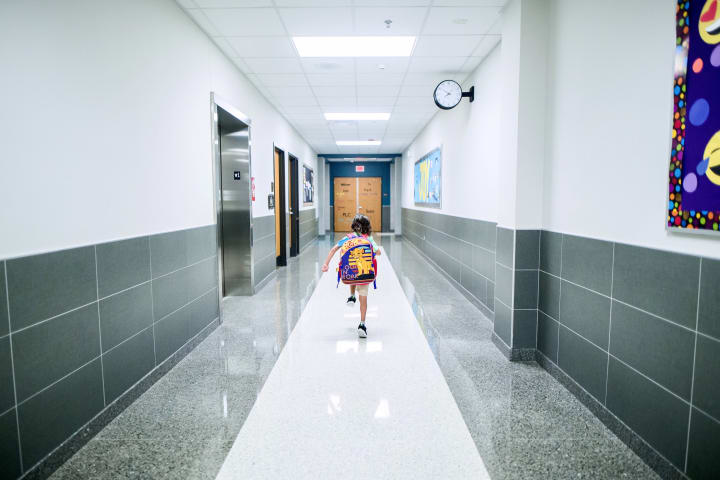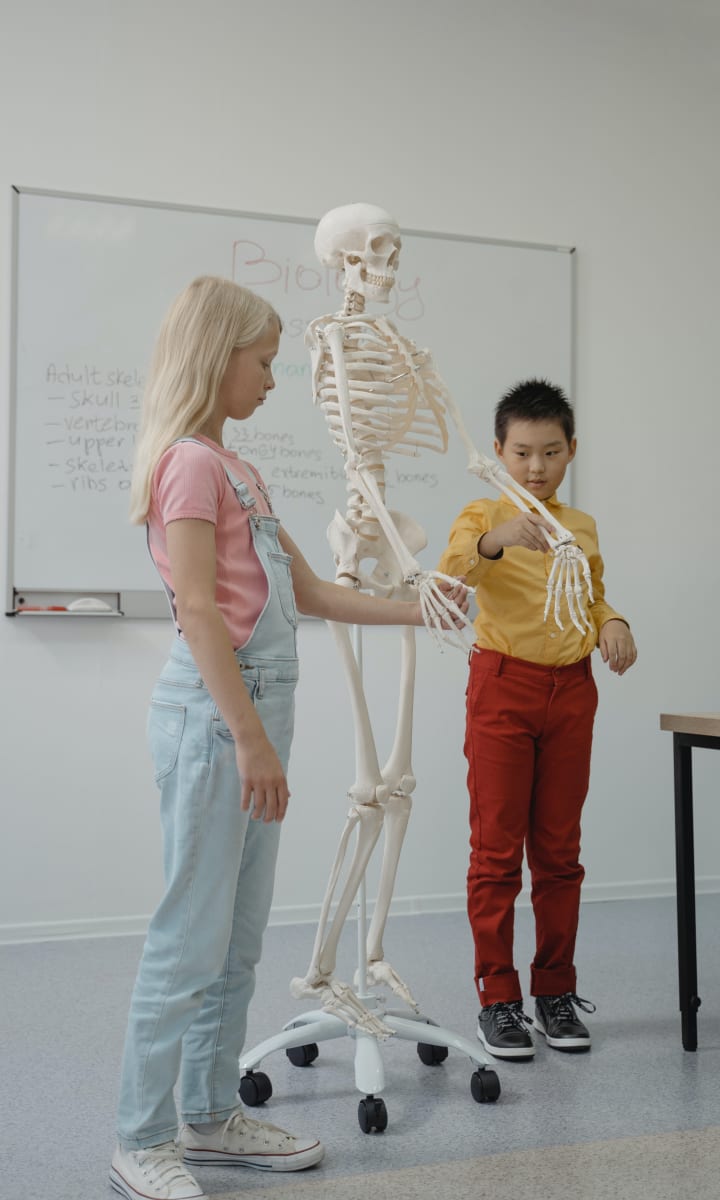Top Nine High School Tips
Expert advice and strategies to excel in high school and beyond

It might be difficult to adjust to all of the changes from previous schools when you first join high school. Fortunately, remembering a few basic things helps ease the majority of the stress that comes with high school. I composed this post less than a year after graduating from high school to share some of the most essential skills I gained during my education.
Life isn't fair
You've probably been cautioned that life isn't fair, unless you've been living in a cave. The saying is said so frequently that everyone forgets what it implies and no one pauses to think about it. Isn't life unfair when you're passed over for a promotion for which you've been working for months?

Isn't it unfair that your neighbor can afford a more expensive car than you can? Isn't it unfair when a close friend or relative is diagnosed with a serious illness yet you escape unscathed?
Life is certainly not fair in all of the above scenarios, and this remark also applies to high school. When you're denied from the National Honor Society because you engaged in more after-school activities than in-school activities, life isn't fair. When someone sitting next to you can answer an equation in two seconds while you contemplate it for two hours, life isn't fair. Life isn't fair when athletes get all the attention while other clubs and activities go unnoticed.

8. Take a wide variety of courses
Whereas many of the top ten on my list were inspired by regrets or missed opportunities, one of the great decisions I made during my high school career was to take a range of classes.
I would advise everyone, regardless of chosen college major, to take a diverse set of courses. For example, in eighth grade, my parents and I were perusing the school book when we came across a woodworking course. Even though I had no plans to become a carpenter after I graduated, I had enjoyed "industrial arts," as it was known at Upper Moreland Middle School at the time. I was worried on the first day of class since

I was similarly hesitant to add AP Government to my schedule at the end of my junior year. Again, I wasn't sure if taking a government class would benefit me when I could have chosen any number of easier classes. While I was fortunate to take the course during what could have been the most dramatic presidential election in history, I greatly loved the program and learned a great deal about political systems that will benefit me in the future as an American citizen and voter.
AP classes are also quite beneficial. I was able to earn 18 credits before starting college by taking these courses and taking the associated tests, and I will be able to graduate in seven semesters. With the exception of one subject (which did not even count for college credit at Penn State), I would strongly suggest all of the AP courses I took. But be cautious: some of these courses require a lot of work, and individuals who don't think they can keep up would be better off with a lighter schedule.

Finally, if you notice a course that you think you might enjoy or that will be useful in the future, take a chance and schedule it. AP courses are also a terrific way to gain college credit while still in high school, so take advantage of them!
After three years of middle school, the Upper Moreland School District provides a very strong "transitional" program to help pupils succeed in their freshman year of high school. Unfortunately, I had no idea how severe the task would be when I started in high school. For reasons I cannot recall, I slacked off in 9th grade, obtaining a B average. While several of the classes I took were extremely challenging, I believe I could have earned higher grades if I had worked more. I resolved to pull everything together and study harder after being ranked 59th in the class (in the 22nd percentile), finally graduating in 10th place. While a final GPA of 99.59 was not poor by many standards, it was insufficient to secure scholarships at Penn State or (despite the fact that I had decided against it before receiving their final decision) to attend the University of Pennsylvania.

5. Consult with others before enrolling in classes.
One of the worst mistakes I've made in the last four years was failing to research the classes I was taking. I was thrown into situations for which I should have been better prepared because I had no idea what the training was like or how it would benefit me in the future.
When I think back on experiences I might have done without, three courses in particular come to me. While I won't delve into specifics, I will state that I received little to no long-term value from these classes and would have been better off pursuing something different. Looking back, I've realized that classes that seek to "prepare students for college" are probably not worth taking.

4. Learn to drive at the age of 16
The title of this advice is a little deceptive. Let me clarify unequivocally that if I were the world's dictator, the legal driving age would be 18. However, because the driving age in Pennsylvania is 16, I must include recommendations to learn to drive as soon as feasible. However, because of the new six-month wait restrictions, I had to wait until I was 18 to learn to drive. It wasn't until I learned how to drive that I realized how crucial the ability is in everyday life.
It had never occurred to me how many seemingly minor things that would normally take days to accomplish might be completed in a short period of time when one has the opportunity to travel to collect whatever is required. More importantly, I learned that many of the mundane activities in which many young people routinely participate (such as going to the movies), while not particularly difficult previously, became tremendously easier with the flexibility to come and go as I pleased.

It had never occurred to me how many seemingly minor things that would normally take days to accomplish might be completed in a short period of time when one has the opportunity to travel to collect whatever is required. More importantly, I learned that many of the mundane activities in which many young people routinely participate (such as going to the movies),It had never occurred to me how many seemingly minor things that would normally take days to accomplish might be completed in a short period of time when one has the opportunity to travel to collect whatever is required. More importantly, I learned that many of the mundane activities in which many young people routinely participate (such as going to the movies)

2. Be your unique self
College, as many colleges advertise, is a place where you can meet people with diverse interests. In high school, though, everyone is (or appears to be) astonishingly similar to one another. The media frequently mentions peer pressure. For example, parents are encouraged to talk to their children at a young age to prevent them from being persuaded to use drugs by their friends. All of this attention is being paid for one simple reason: peer pressure is quite prevalent in high school.
However, at college, the pressure disappears overnight. There are no popular "cliques" that are only for particular people, nor is there a group of forgotten academics who prioritize their scores above everything else. Whereas in high school, a student sitting alone at a cafeteria table preparing for the next day's classes would be labeled "weird" by those who cared more about sports, college students make no such distinctions because there is only one reason to attend a university - to get good grades and graduate.

1. Participate
"That's the number one tip?" you inquire. That's right, my number one tip is something your professors, parents, elder siblings, and pretty much everyone else tells you every day. During my high school orientation, I must have heard this phrase at least a hundred times.
Unfortunately, I didn't pay attention at first.
One of the most significant adjustments I vowed to make when I started college was to become active from the outset. For whatever reason, I limited myself to the school orchestra in 9th grade. What high school orchestra, you may wonder? Actually, the orchestra disbanded at the end of the school year, leaving me out of the picture in tenth grade. During that summer, I realized I was losing out on one of the most significant aspects of high school life. As a result, I returned determined to get engaged, and it was one of the best decisions I've ever made. I learned about a completely new part of high school life. Why is it critical to get involved early? As one would assume, the majority of senior posts in clubs are filled by people who are already involved in the clubs. Join the football team in 9th grade if you want to be the captain. Join class council in 6th (!) grade if you wish to be class president. In summary, Important positions are reserved for people who have been with an organization the longest, as is true in the working world.

However, while I participated in activities that I enjoyed, I also joined a few organizations solely for the objective of being admitted to colleges. Attending meetings of these clubs was a chore that I disliked, but I continued because I assumed it would make my résumé more appealing to college admissions officers and employers. It was too late to realize that most admissions officers would prefer a smaller number of activities to which a prospective student devotes himself or herself rather than participation in every organization imaginable. Even though I was involved in numerous activities, I was unable to find a paying employment during the summer of my senior year. As a result, I encourage engaging in activities that you enjoy to add a new depth to your life, rather than joining groups because some institution in Indiana advised you to "participate."
Finally, get involved as soon as possible. If you don't, you'll miss out on amazing events you'd never have otherwise. But be active because you want to be involved, not because it is a requirement for admittance.
About the Creator
khadija yousaf
i am creative blog writer from pakistan and have much experience in this field
Enjoyed the story? Support the Creator.
Subscribe for free to receive all their stories in your feed. You could also pledge your support or give them a one-off tip, letting them know you appreciate their work.






Comments
There are no comments for this story
Be the first to respond and start the conversation.